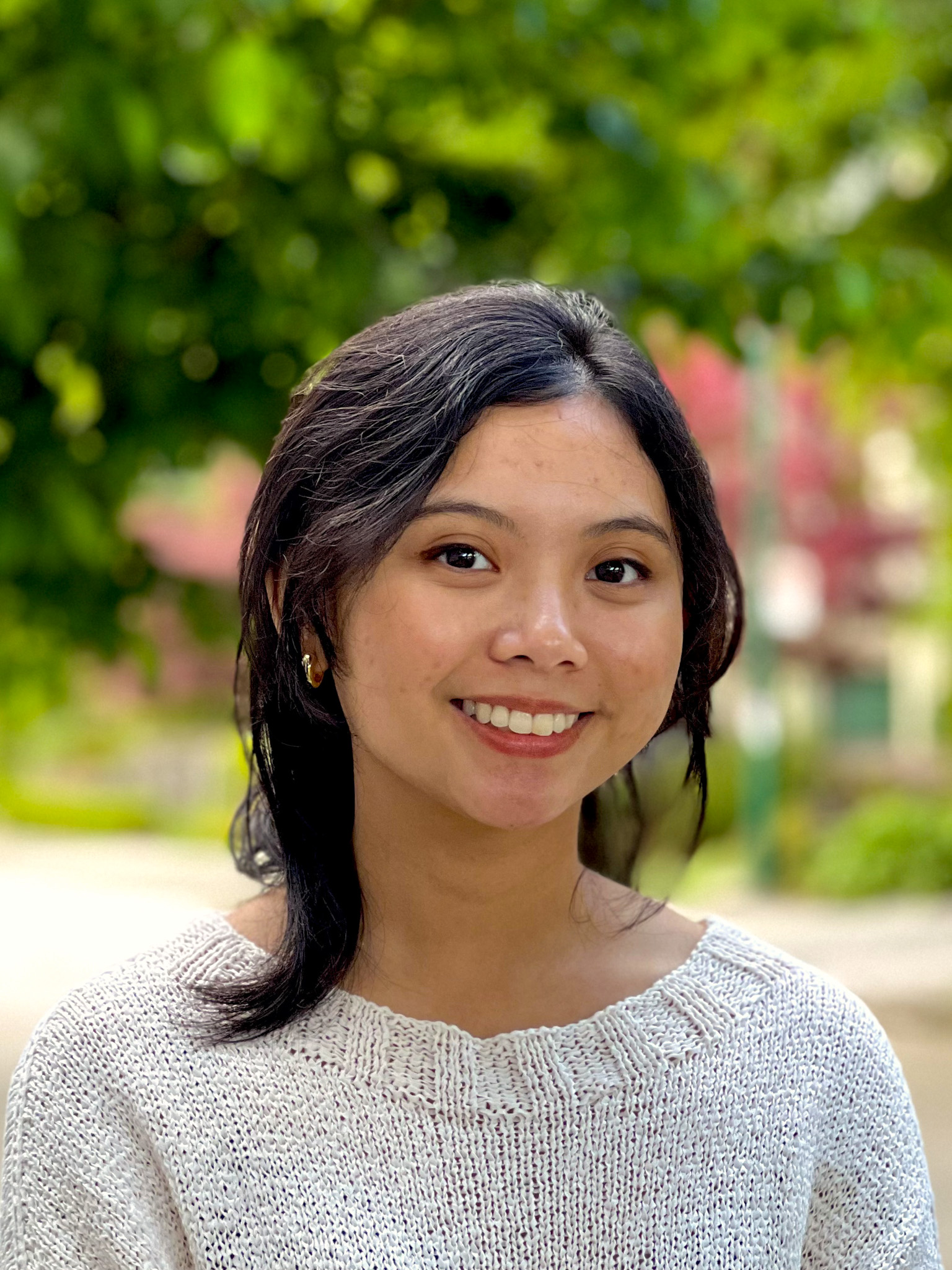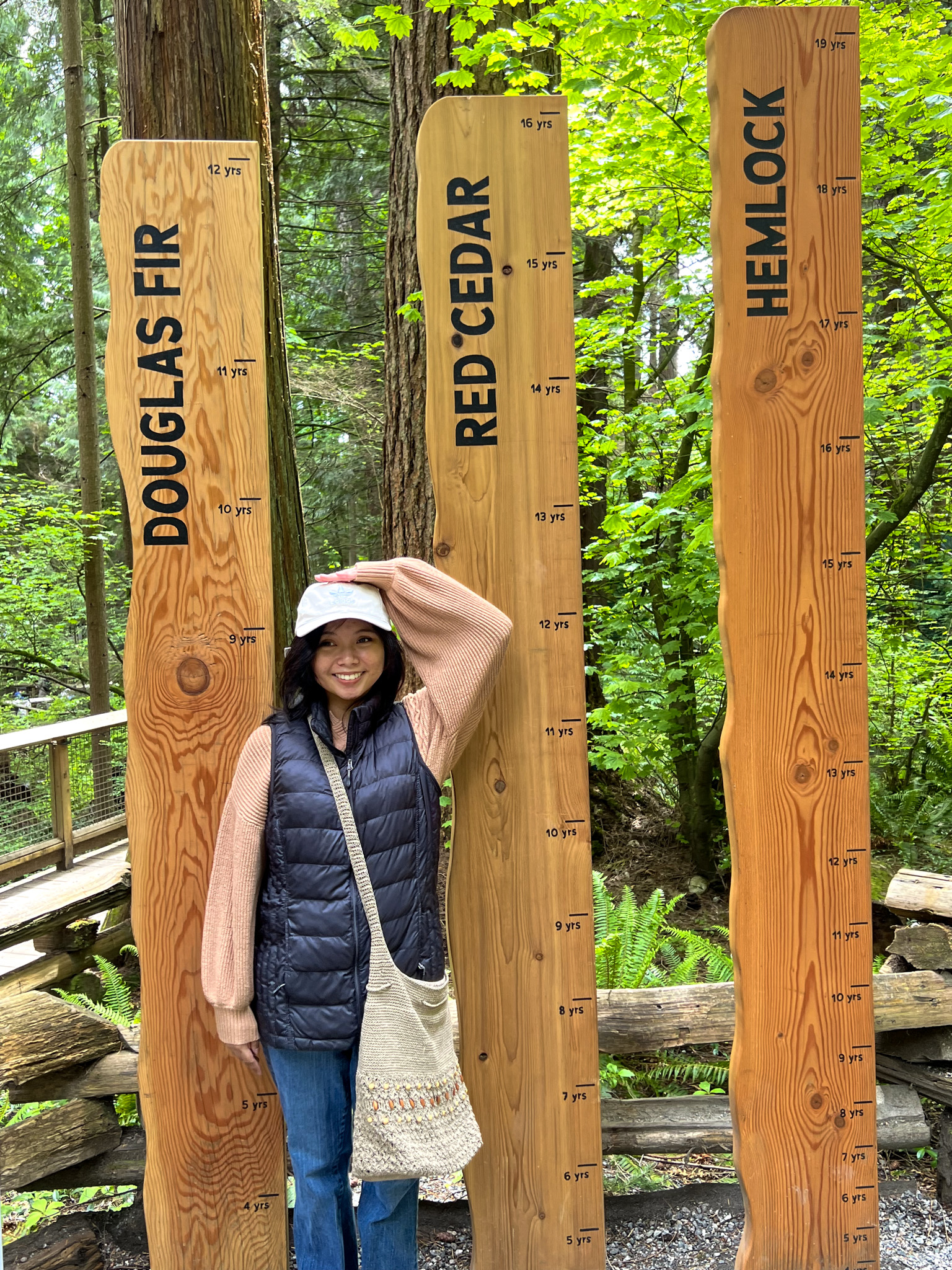Gabrielle Abando is a fourth-year Sociology honours student working under the supervision of Dr. Sean Lauer.
Her research project, “‘Tao Po!’ An exploration of the role of Filipino Canadian neighbourhoods in anchoring and cultivating Filipino Canadian community,” investigates the spatial mechanisms of immigrant enclaves in cultivating well-connected and integrated immigrant communities through a case study of Vancouver’s Joyce-Collingwood neighbourhood, a hub for Filipino Vancouverites.


Honours student Gabrielle Abando
How did you become interested in this topic? Why did you choose it for your thesis?
As a Filipino who was born outside the Philippines and lived in four countries, I grew up attuned to the local city infrastructure’s role in articulating different ‘variations’ of Filipino communities.
This thesis is a deep dive into these intuitions, but also a love letter: to a community space that embraced me when I myself arrived alone as a newcomer, to the Filipino academics whose work gave me a place to belong in an otherwise alienating academy, and to my family and Filipino families like us who find ways to carry on our heritage despite the distance from our homeland.
Can you summarize your project and its main findings for us?
My research investigates the spatial mechanisms of immigrant communities using Vancouver’s Joyce-Collingwood neighbourhood, a well-known hub of Filipino immigrants, as a case study. It uses a combination of interviews and ethnography to capture the life of the neighbourhood and how residents and regulars interact with and relate to the neighbourhood space.
I find that the Joyce-Collingwood neighbourhood space is a ‘refuge’ from an unfamiliar or lonely host society for first-generation immigrants. It is also an important site for facilitating co-ethnic community-building that future generations are raised in and fall back on to affirm their Filipino cultural identity, creating securely hybrid Filipino-Canadian identities. Additionally, as Filipinios interact with the space and decide what’s ‘authentic’ and what’s not, the neighbourhood space generates a set of shared ‘Filipino cultural symbols’ that articulate a Filipino identity unique to that local area.


What was your favourite part of doing research?
I didn’t anticipate how transformative this work would be both for myself and my participants. There were moments during my interviews where participants reflected on their immigration journeys, or the children of immigrants arrived at realizations about their family immigration histories that had them leaving the interview with a greater appreciation for the Filipino community’s role in their lives and a renewed sense of pride in their Filipino-Canadian-ness.
For myself, spending time doing ethnography work in the neighbourhood made me so appreciative of little moments of contact between friends and strangers. I watched and had so many lovely casual interactions with other FIlipinos on the street or in the restaurants. For an undergrad who spends most of her days hitting the books, the ethnography work made me feel a little less alone, too.
What was the most difficult part of this learning journey? What was most satisfying?
The most difficult part of this project also ended up being one of the most satisfying for me: synthesizing all of my literature review and findings into my discussion.
When you have eight months worth of notes and transcripts it’s hard to sit there with everything and try to make something coherent out of such dense content. I remember quite clearly sitting in a coffee shop with my friend when I finally drew a diagram of what became my final discussion and forcing her to sit there and listen to me talk through this diagram I’d just come up with — that ‘aha’ moment gave me such an adrenaline rush!
Do you have advice for other prospective Sociology honours students? What are your biggest takeaways from this research journey?
You don’t get through the program alone! I am so grateful for my cohort members and our late nights at IKB, weekends in ANSO, and 3AM texts of ‘has anyone finished their lit review yet?’. Knowing that your other cohort members are going through it as much as you are is a comfort and an encouragement — honours students are just as much of a mess as everyone else!


